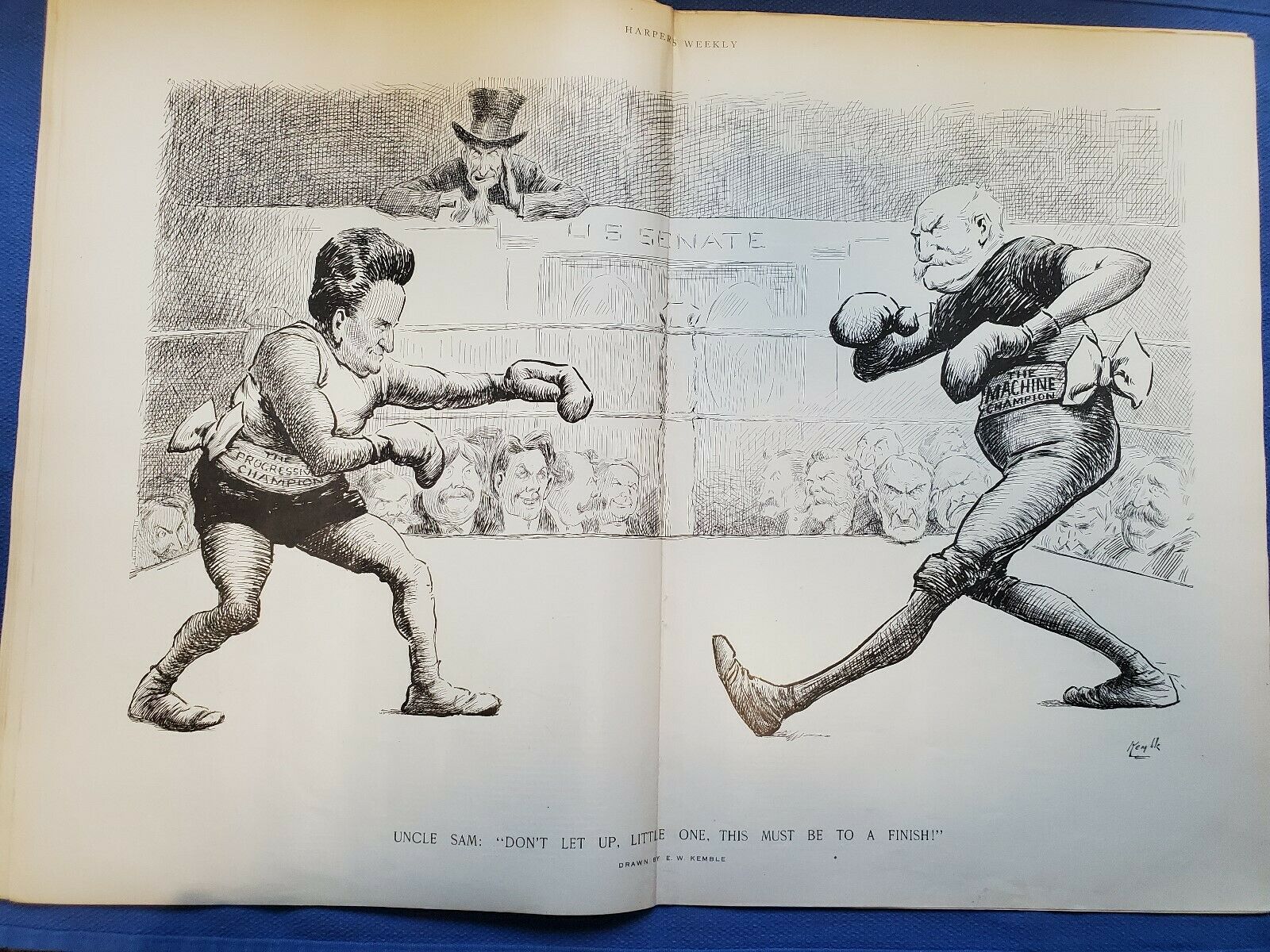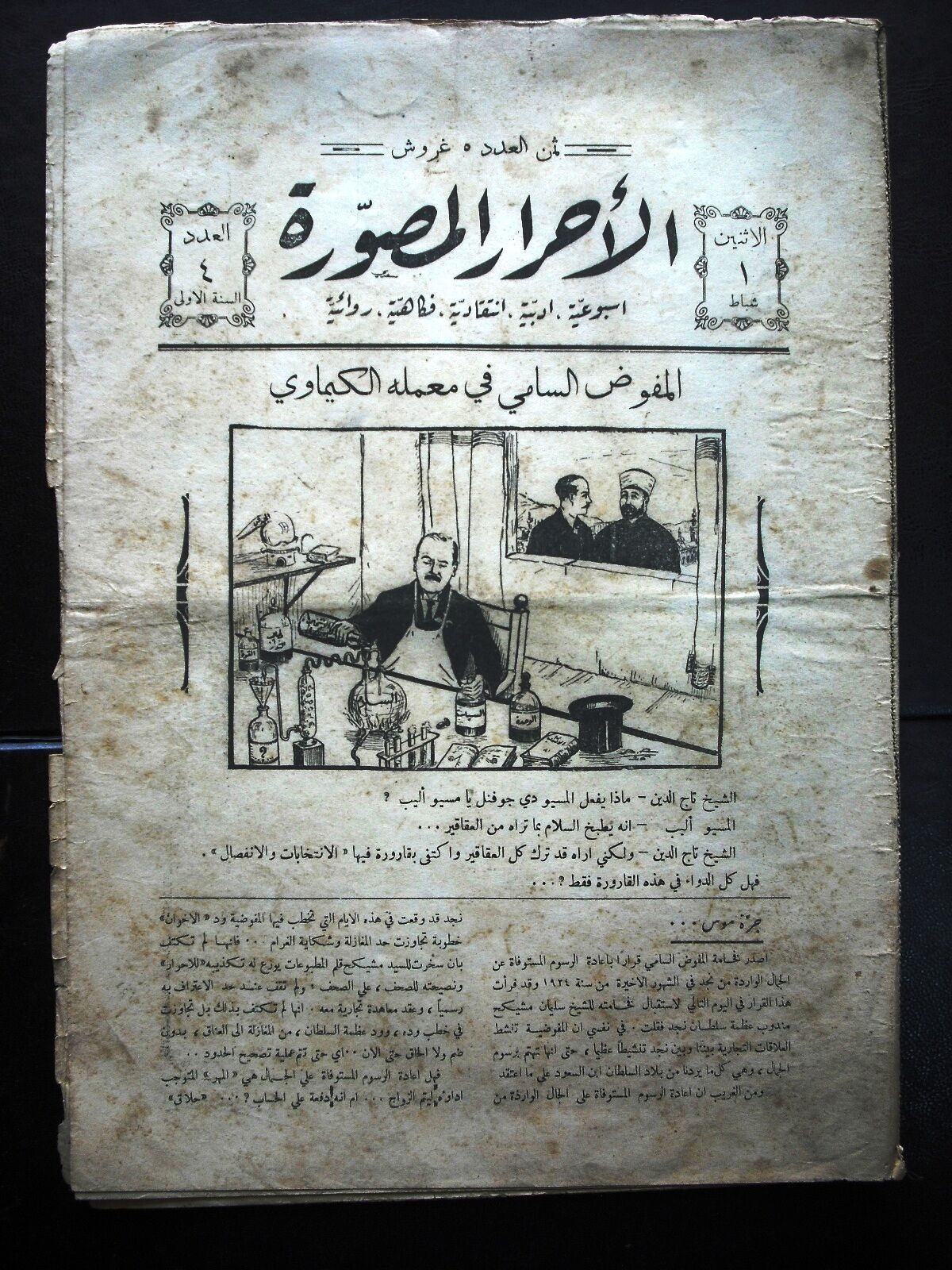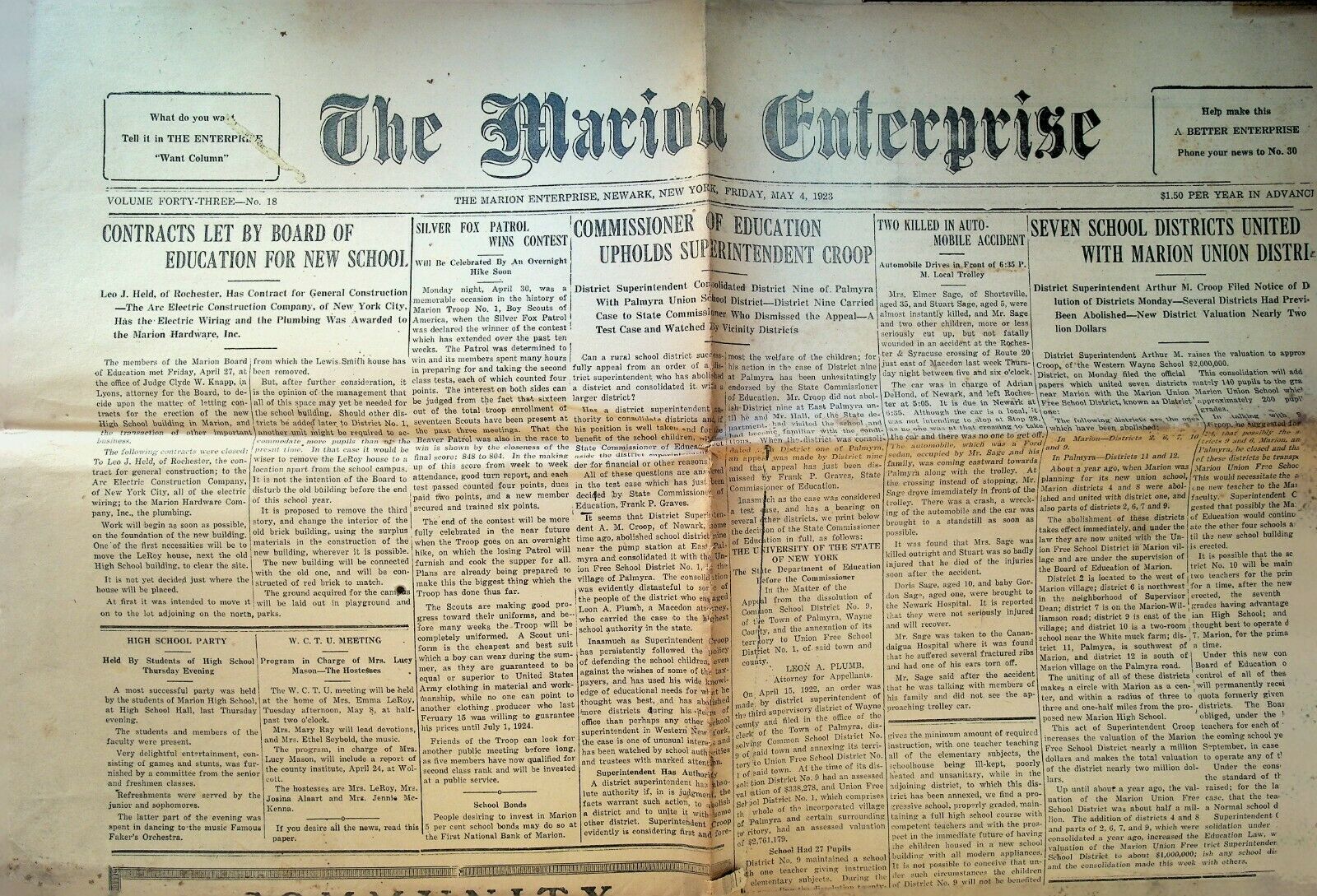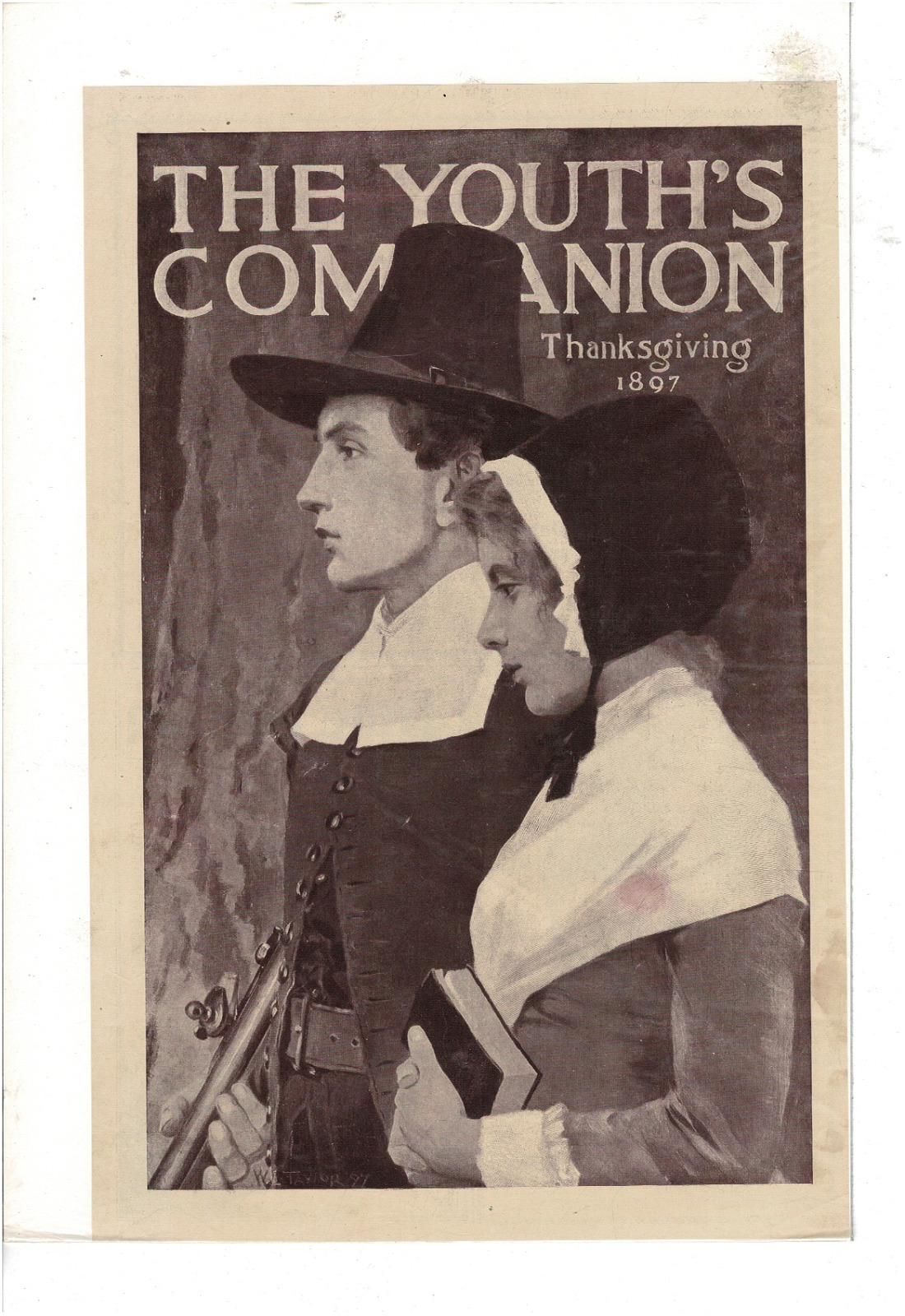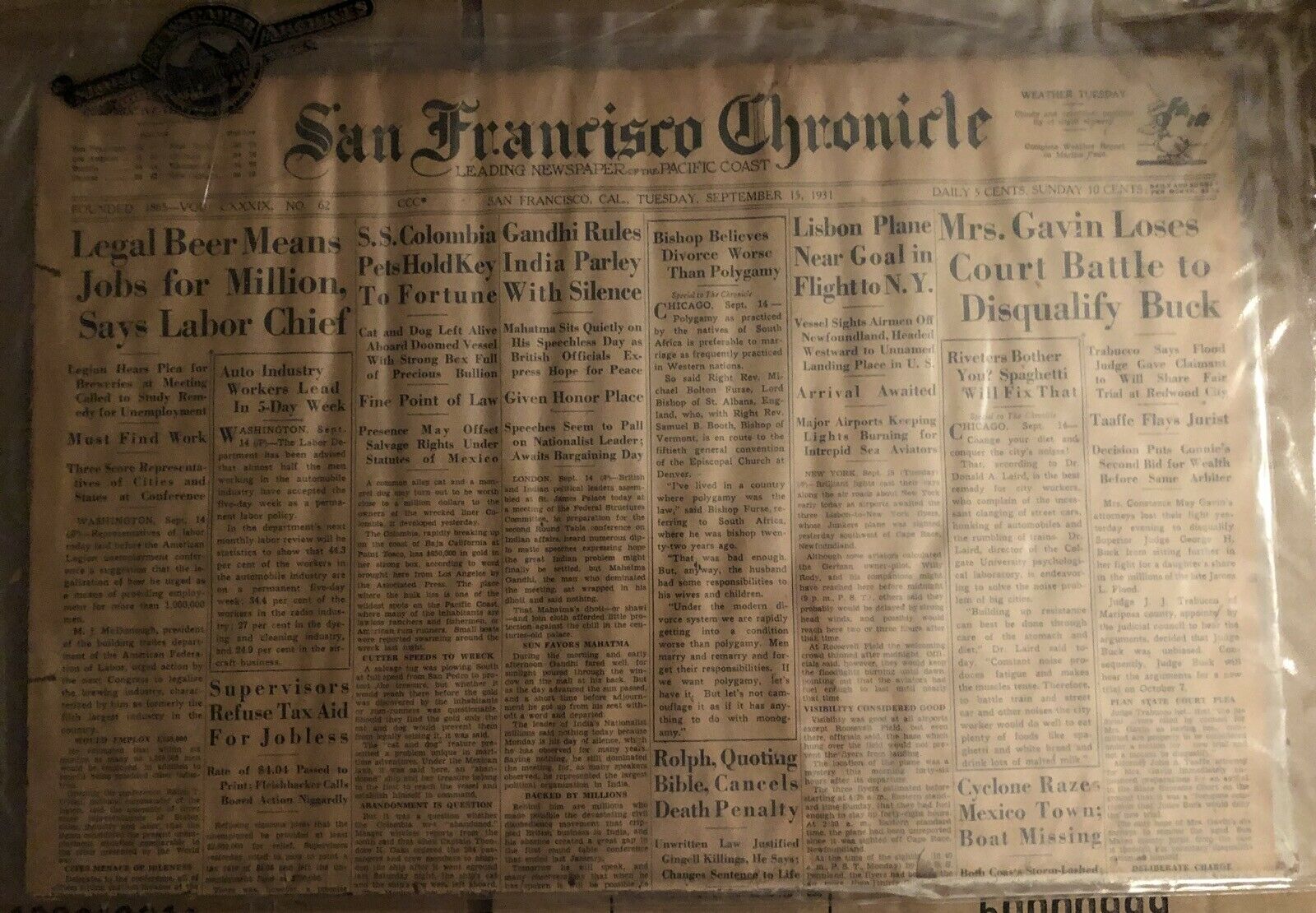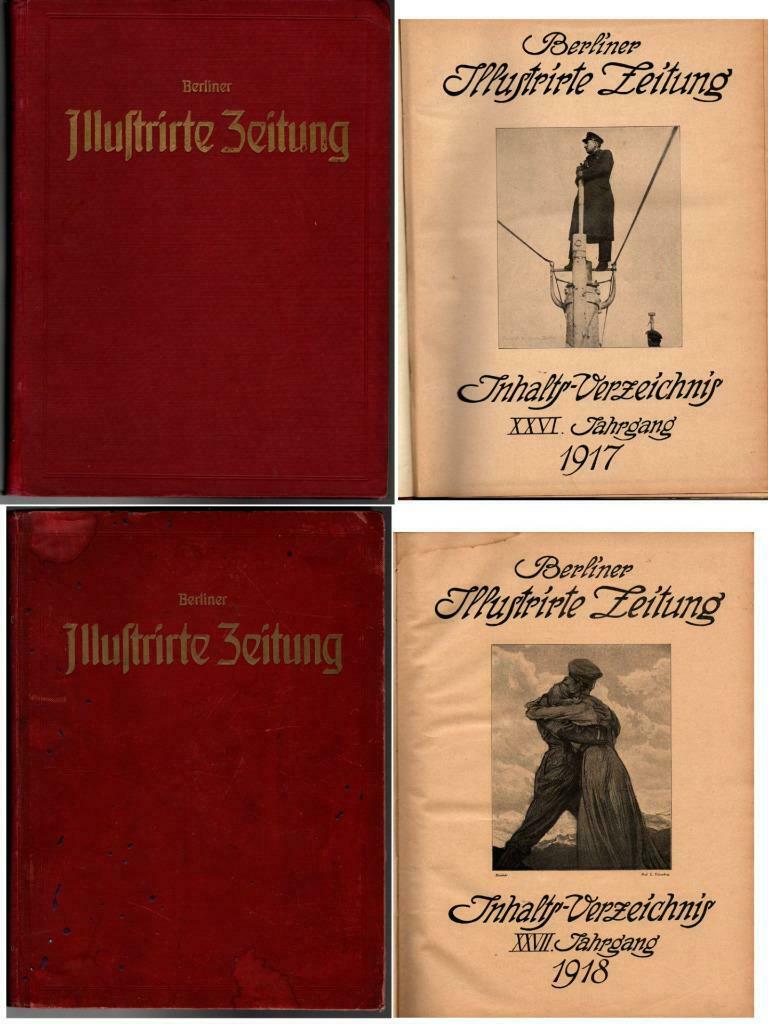-40%
NYC Art and Traffic, Meat Cuts, Charleston Church, Harper's Weekly Feb 26, 1910
$ 9.49
- Description
- Size Guide
Description
You are bidding on a complete original issue of Harper's Weekly published February 26, 1910. The pages measure approximately 10.5 x 15 inches (13 x 18 for center-folios) and this issue includes pages 3-36. All pages may not be shown due to space constraints. Great pictures, humor, science, literature, sports, theatre, history, news of the day, and wonderful old ads. Most issues are replete with politics and New York City doings.It is 1910
. The "Progressive Era."
William H. Taft
is the U.S. president. The Boy Scouts of America is incorporated. The Westmorland coal strike is at its height.
Henry Ford
sells 10,000 automobiles. African-American boxer
Jack Johnson
defeats white boxer
James Jeffries
, sparking race riots throughout the country. Meanwhile, the greatest fire in U.S. history, the "Great Fire of 1910," rages
in the west.
This Issue:
Cover Page: "The Bully's Waterloo" by William L. Jacobs
"A Ballad of the Banks" by Francis Medhurst
"Pussyfoot" Government Agent
The Waste in the Porterhouse
New York as an Art Centre
New York's Traffic Problem
Bells of St. Michael's Church Charleston
Laura Nelson Hall
The Everlasting Briton
"To the Finish" centerfold by E. W. Kemble
Mural Decorations
"Toilers of the Sea" by M. J. Burns
Finance
Motor-Driving
Supplemental Rear Cover Page, Gold Medal Flour (detached)
Please look at my feedback to witness
sane pricing in action!
I am not a book or paper dealer so please view pictures to determine condition.
This lot will be packed flat and mailed first class USPS. I will pay half of the just under .00 cost for first class.
Paypal please.
Please view my present and soon-to-come Harper's Weekly listings and thanks for looking.
Harper's Weekly, A Journal of Civilization was an American political magazine based in New York City. Published by Harper & Brothers from 1857 until 1916, it featured foreign and domestic news, fiction, essays on many subjects, and humor, alongside illustrations. It carried extensive coverage of the American Civil War, including many illustrations of events from the war. During its most influential period, it was the forum of the political cartoonist Thomas Nast.







